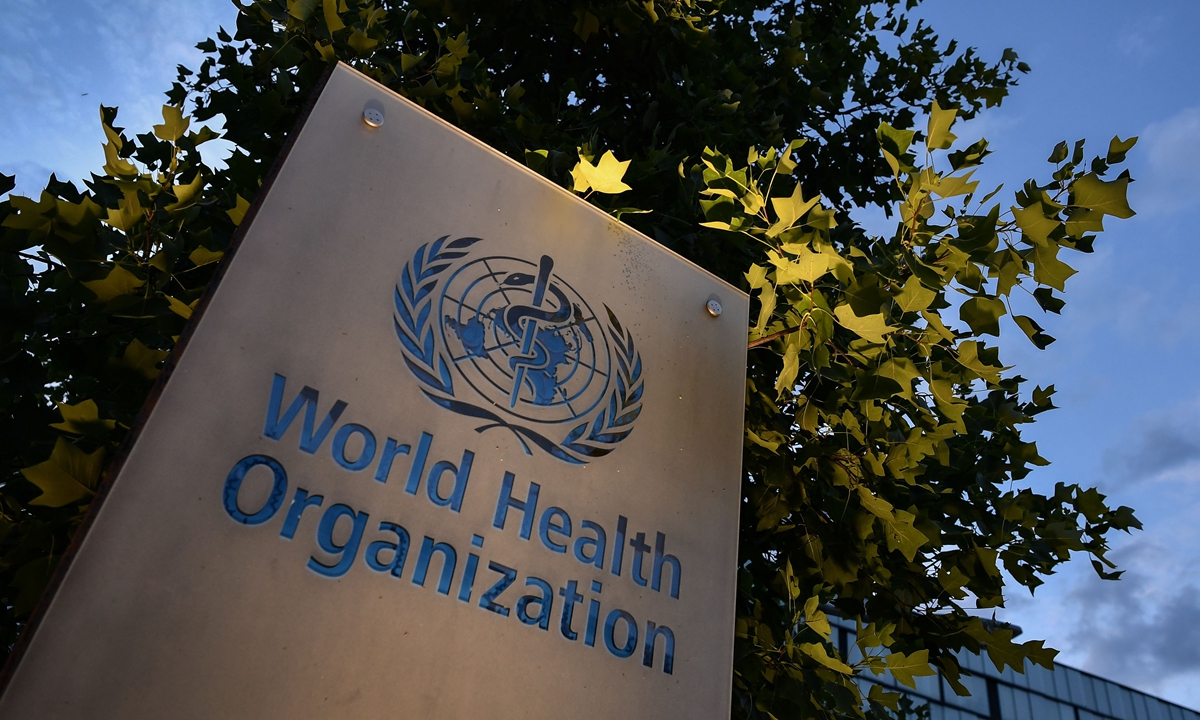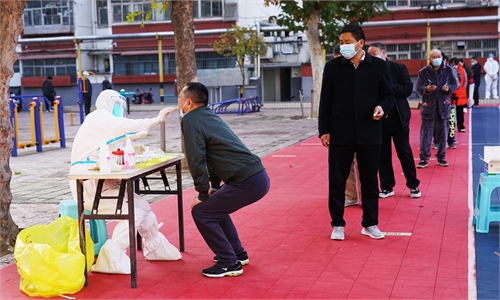COVID no longer a global health emergency: WHO
Virus still exists after killing 7m; surveillance won't stop: experts

World Health Organization (WHO) File photo: VCG
The World Health Organization on Friday announced that COVID-19 is no longer a global emergency, marking a symbolic end to the pandemic, which has taken 7 million lives around the world. The move is deemed a natural one given the current stable situation.
"It's with great hope that I declare COVID-19 over as a global health emergency," WHO Director-General Tedros Adhanom Ghebreyesus said on Friday while noting that this "does not mean COVID-19 is over as a global health threat," as some regions, including Southeast Asia and the Middle East are seeing spikes in cases.
The UN health agency first declared the coronavirus to be an international crisis on January 30, 2020 and during the past three years, the total number of infection cases worldwide exceed 765 million with more than 6.9 million deaths, according to WHO data as of May 3, while the US has the largest number of deaths from COVID-19 with more than 1 million.
Feng Zijian, former deputy director of the Chinese Center of Disease Control and Prevention (Chinese CDC), told the Global Times that COVID-19 no longer being a public health emergency of international concern signifies that the epidemic disease will be treated as a commonly seen disease, just like influenza.
Following the downgrading of COVID-19, global emergency response measures can be lifted, including quarantine and policies that hinder international travel. The production, approval and emergency use of COVID-19 vaccines will go through normal procedures, which usually require longer periods of time to process, Feng noted.
"We finally stepped out [of the pandemic]," Wang Guangfa, a respiratory expert at Peking University First Hospital in Beijing, also part of the first expert team that traveled to Wuhan in January 2020 at the beginning of the epidemic, said when talking about his personal feelings of the WHO's decision with the Global Times on Friday.
The move is of great significance to China and the world after its three years' combat against the virus. Facts show that global prevalence remains at a low level, the pathogenicity of the virus is decreasing and the immunity of the global population against the virus is strong after mass vaccination and infection, Wang said.
The move also thrilled many people in China, which withstood the first COVID-19 outbreak in the world and made great sacrifices over the past three years to contribute to the global combat against the virus.
"This achievement we made today is based on the united fight against the virus at the beginning of the epidemic, based on the vaccines the researchers developed, based on the work of millions of grassroots officials and based on the people's cooperation in the anti-epidemic work," a Chinese netizen commented on Sina Weibo.
Zeng Guang, former chief epidemiologist of Chinese CDC, agreed that the decision is a natural one given the current stable situation.
China optimized its management of COVID-19 at the end of 2022. The latest decision by the WHO will further encourage the world to resume international exchanges and travel, experts said.
The WHO continued to list the COVID-19 pandemic as a global emergency after China downgraded its management of the disease. This was mainly in consideration of the severe situation in some countries and regions, especially in some less-developed areas, where the mortality rate was still high, Zeng said.
These days, the disease has basically been brought under control and the weather is getting warmer, which will help prevent the virus from spreading. It is based on these combined factors that the WHO made its latest decision, Zeng explained.
But the virus will continue to stay with us even after it is no longer a global emergency, experts warned.
In the future, sporadic cases will occur, but a large-scale outbreak is unlikely, according to Wang. He suggested high-risk groups like people with underlying diseases and the elderly take vaccines every year to protect themselves against the virus.
COVID-19 won't disappear from our lives, and our surveillance and study of the disease, including whether we should receive vaccines over a certain period of time or how the variants will mutate, will not stop, Feng said.
He explained that China and the rest of the world have already been infected on a large scale, and people in many countries have had repeated infections and received a large proportion of vaccines, so we won't need to worry about another peak outbreak in which rocketing infections occur in a very short period of time.
Zeng also called for continued close supervision of the virus, saying it is better to wait until next spring to judge whether there will be large-scale outbreak. "But we should stay positive about the future."


